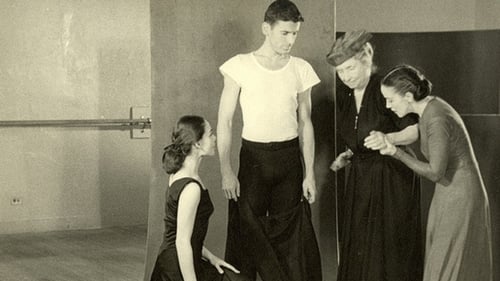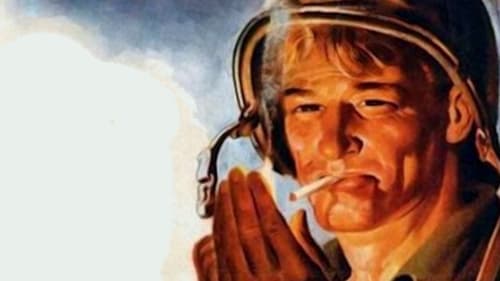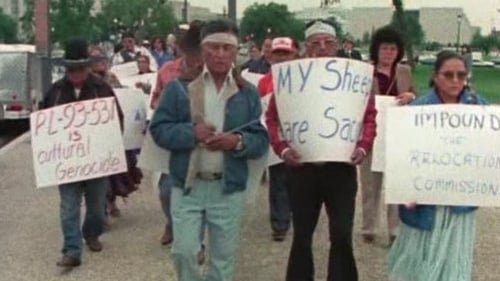Artie Shaw: Time Is All You've Got (1985)
ジャンル : ドキュメンタリー, 音楽
上映時間 : 1時間 54分
演出 : Brigitte Berman
シノプシス
This in-depth examination of the life and career of clarinetist and bandleader Artie Shaw cuts between archival footage, location shots, and an interview with Shaw himself. Berman illustrates the tumultuous, complicated, and remarkable legacy of a man who brought numerous innovations to jazz and swing music during the big-band era.

Board and Care is a 1979 American short film directed by Ron Ellis and starring Richard Goss and Laura Jean Ellis. It won an Oscar at the 52nd Academy Awards in 1980 for Best Short Subject.

The Magic Machines is a 1969 American short documentary film directed by Bob Curtis about kinetic artist Robert Gilbert, a young hippie sculptor who makes bright-colored, motor-driven machines from metal trash and spare parts. It won an Oscar at the 42nd Academy Awards in 1970 for Academy Award for Best Live Action Short Film and was nominated for Academy Award for Best Documentary Short Subject.

Filmmakers Sue Marx and Pamela Conn document the romance between Sue's father Louis Gothelf and Reva Shwayder, each in their mid-80s. Both artists and residents of the Detroit suburbs, they met on a group tour of England after being widowed, and quickly formed a strong connection over shared interests. The two discuss concerns over living together without being married; Louis also talks about his caring for his first wife during her ten-year struggle with Alzheimer's disease, while Reva talks about the deaths of two sons several years after her husband's death.

On May 8th, 1945, writer, director Norman Corwin broadcast ON A NOTE OF TRIUMPH, an unforgettable homage to the end of war in Europe. This film shines a light on a lost work of genius, and examines it's haunting resonance to today's current events.

Australian pediatrician Helen Caldicott delivers a lecture on the potential medical and societal consequences of a nuclear war, and advocates for nuclear disarmament. The film includes newsreel records of the beginnings of the arms race and the bombings of Hiroshima and Nagasaki, as well as film records showing the Japanese who were severely scarred and burned in the bombings.

This John Nesbitt's Passing Parade short tells the story of 18th Century French physician Dr. Philippe Pinel, who initiated enlightened, humane treatment of the mentally ill.

Toward Independence is a 1948 American short documentary film about the rehabilitation of individuals with spinal cord injuries.

Princeton: A Search for Answers is a 1973 American short documentary film, directed by Julian Krainin and DeWitt Sage, and produced for the Princeton University Undergraduate Admissions Office as a recruiting film. In 1974, it won the Academy Award for Best Documentary (Short Subject) at the 46th Academy Awards.

An African tribe in the Eastern Nigerian village of Umana work to build a maternity hospital, with the aid of government officials, and against the opposition of some tribal members.

A hilarious and affectionate look at the path to stardom inside the competitive world of opera. Filmmakers Allie Light and Irving Saraf relegate the divas to the background and focus on a limelight-craving group of "choristers" -- the seldom-noticed singers who stand behind the soloists portraying peasants, soldiers and slaves.

The O'Dell farm is on the rocks. A non-traditional accountant comes with a variety of ways to save the farm.

In September, 1959, six Europeans leave Cook's Bay on the southern coast of Dutch New Guinea, now West Papua or Irian Jaya, to trek north to the far side of the island. The journey (450 miles, as a crow flies) across unmapped territory took seven months; three Muyu porters died. Near both coasts, the expedition met villagers who invited them to observe rituals and live with them. In the interior, all villagers kept them at bay, and they depended on air lifts from Hollandia for food and supplies. They climbed above 10,000 feet, built 14 bridges, and fought leeches and malaria. The narrator focuses on describing Stone Age savages, headhunters, and cannibals.

Narrated by actress Katharine Cornell and filmed in black and white, it spends the first 24 minutes introducing viewers, through newsreels, interviews, and old photographs, to the story of the deaf and blind disabled-rights pioneer. News footage shows her international appearances and visits with heads of state, including President Eisenhower allowing her to feel his face. The second half takes a day-in-the-(exceptional)-life approach to Keller's existence circa 1955. Made just 13 years before her death, Keller's famed tutor-translator-friend Anne Sullivan had already died, leaving her live-in replacement, Polly Thomson, to share the film's focus. From the time Keller takes her morning walk along the 1,000-foot handrail around her yard through her workday to her nightly reading of her Braille Bible, her serene acceptance of her life will amaze and inspire.

The story of a boy who has a goldfish as a pet, and the family cat has other plans for the goldfish, and a canary protects it by distracting the cat.

A look at some of the last stone carvers working in the United States, those completing the sculptures adorning the Washington National Cathedral. They discuss their craft and the cultural forces which helped define it, as well as the fading use of stone ornamentation in architecture and the history of stone carving, and they tour the cathedral to point out the history behind some of the work.

This biographical docudrama traces the life of Dr. Albert Schweitzer, from his birth in Alsace, up to the age of 30 when he made the decision to go to French Equatorial Africa and build his jungle hospital. The latter half of the film encompasses a full day in the hospital-village, following the octogenarian Samaritan in his daily rounds.

A documentary account of the allied invasion of Europe during World War II compiled from the footage shot by nearly 1400 cameramen. It opens as the assembled allied forces plan and train for the D-Day invasion at bases in Great Britain and covers all the major events of the war in Europe from the Normandy landings to the fall of Berlin.

"To Be Alive!" was designed to celebrate the common ground between different cultures by tracing how children in various parts of the world mature into adulthood.

Oscar Winning short documentary

Documentary chronicling the government relocation of 10,000 Navajo Indians in Arizona.








